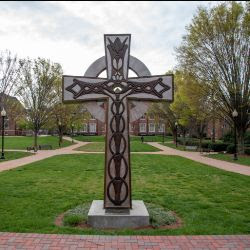John Calvin begins his Institutes of the Christian Religion with God’s revelation being found in all of creation. For the spiritual but not religious, a growing number in the United States, general revelation is a relatable beginning point. Looking back to my youth and early young adulthood, I can see that I was more of a Calvinist than I realized. I loved finding the Divine while hiking in the Weminuche Wilderness of southwest Colorado or playing the trombone to Gustav Holst’s “The Planets” surrounded by a symphonic orchestra. It wasn’t until I found myself working at Mo-Ranch Conference Center in Hunt, Texas, that I began to find words that aligned with the feelings I would experience in those places. In my rhythm of waking up early to open the dining hall for breakfast, I committed to read a Psalm a day for the summer. Although I would have laughed at you if you told me then that I would be a Presbyterian minister someday, I can see that reading those psalms is what brought authenticity to my faith and made me interested in Scripture. I find nothing performative about these lyrical expressions of the heart in the psalms. When Psalm 148 pulls forth images of nature, it is almost like a director of the orchestra nodding her baton; first, toward the planetary strings; then, toward the star struck trumpets; next, the brass sea monsters; followed by the snowy, fiery percussion; and then at last but not least the windy flutes and clarinets. Reading the psalmist’s progression, I find myself starting to reach for my trombone to join in the bolder and bolder praise of God! Psalm 148 reminds me that this crescendo of praise happens not just in nature and within the walls of an orchestra hall but out in the rest of the world as well. You can find the rest of the commentary on our website.
Thank you to guest writer Kyle Walker. | 










No comments:
Post a Comment